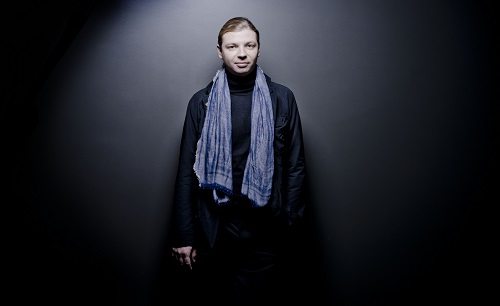 New Zealand Beethoven, Schumann, Sibelius: Denis Kozhukhin (piano), New Zealand Symphony Orchestra / Thomas Søndergård (conductor), Michael Fowler Centre, Wellington. 18.5.2019. (PM)
New Zealand Beethoven, Schumann, Sibelius: Denis Kozhukhin (piano), New Zealand Symphony Orchestra / Thomas Søndergård (conductor), Michael Fowler Centre, Wellington. 18.5.2019. (PM)

Beethoven –Overture, Coriolan Op.62
Schumann – Piano Concerto in A minor Op.54
Sibelius – Symphony No.6 in D minor Op.104; Symphony No.7 in C major Op.105
For some time, the New Zealand Symphony Orchestra’s publicity strategy has involved the use of various ‘catchy’ subtitles associated with individual concerts, the idea presumably being to ‘warm up’ the ‘stuffy’ image of classical music-making, as well as attract people who don’t perhaps have sufficient knowledge of the orchestral repertoire with an overall ‘idea’ of what the music could be about. An NZSO concert bearing the legend ‘Love Eternal’ was the latest instance of this, undoubtedly suited to one of the pieces programmed here, the Schumann Piano Concerto – but I wondered how listeners coming for the first time to either the Sixth or Seventh Symphonies of Sibelius would equate the music they heard in the programme’s second half to that same description.
Perhaps with Beethoven’s Coriolan Overture, which began the evening, one could equate aspects of the story which inspired the music with ‘love’ of a different, duty-bound kind to that conjured up by Schumann’s joyous piece – but Sibelius’s music here, though expressed in late-Romantic orchestral language, took the form of two atmospherically scored, tautly conceived structures, each with its own logic and austerity entirely characteristic of the composer’s later works. Together with the leaner, more rugged aspects of Coriolan (and away from the glib concert title) they made a telling and invigorating contrast with the mellow romanticism of one of Schumann’s happiest and sunniest works.
I remembered conductor Thomas Søndergård appearing with the orchestra before, in 2015, a programme which also featuring Sibelius’s music, as well as two works by Benjamin Britten. It was also an occasion I happily reviewed, finding the NZSO’s playing under the conductor’s direction “at once clearly focused, finely proportioned and satisfyingly expressive”. All of those qualities were again present, and in this instance brilliantly complemented by the piano-playing of Russian-born Denis Kozhukhin in Schumann’s A Minor Concerto.
Beethoven’s Overture Coriolan certainly got the evening off to an intensely-focused start, the slightest hint of imprecision with the first full-orchestra chord at once dispelled by the whiplash impact of the rest, the tortured character of the proud Roman general Coriolanus turned bitter enemy of Rome here portrayed in the most uncompromising terms. Playwright Heinrich von Collin’s version of the story (adapted from Shakespeare’s rather more complex setting of the story) emphasised the character’s nobility and honour, all of which Beethoven brilliantly and succinctly conveyed in his music.
Robert Schumann’s only Piano Concerto received a direct, freshly minted reading from the visiting Russian soloist Denis Kozhukhin, the work’s opening swift and lithe, the cascading notes having at once a gossamer-like quality allied to a tensile strength, qualities whose intermarriage allowed moments of great beauty to intersect with a joyously expressed strength and vigour. Of particular beauty was the wind playing, Robert Orr’s oboe and Ellen Deverall’s clarinet providing some sublime breath-stopping moments during the first movement, complementing the surging fluidity of the piano and orchestra passages. The pianist’s first movement cadenza simply grew from out of these exchanges, as much a poet’s musings as a romantic adventurer’s impulsiveness, all brilliantly satisfying!
Kozhukhin’s fluent, impulsive sounding way with the slow movement’s piano and strings opening stressed the music’s bright-eyed eagerness more than the dreaming lyricism, though the musicians still found moments of ear-catching stillness in places, while the cellos shone with their richly wrought ascending melody mid-movement, bringing forth from Kozhukhin the tenderest of keyboard responses. As for the finale, it danced its way exuberantly along the music’s courses, pianist and orchestra bringing out the interplay between heroic swagger and elfin nimbleness, all to great and beguiling effect. In response to the audience acclaim at the work’s end, Kozhukhin again charmed his listeners with a delicately atmospheric rendition of Grieg’s adorable ‘To the Spring’, leaving one longing to hear him play a recital one day…
After the interval came the two enigmatic and elusive, but very different Sibelius symphonies – firstly, the Sixth, with its ancient and remote yet bracing set of polyphonic voices, the textures at once rich and spare, relying as much on clarity as on atmosphere to generate the work’s unique evocation of stillness and ferment. Søndergård’s reading brought out all the music’s distilled fantasy and mystery in the first two movements, the playful physicality of the third, and the contrasting wildness and fervour of the finale, the music concluding as enigmatically as it began.
By contrast the Seventh was a properly epic statement, its single movement span expressing an ever burgeoning orchestral eloquence in Søndergård’s hands. NZSO trombonist David Bremner’s resounding playing sonorously shaped the music’s three great peaks of focus around which swirled great arcs of colour and irresistible energy – the work became in this performance both a lifetime’s and a whole world’s varied expression of transcendent being.
Peter Mechen